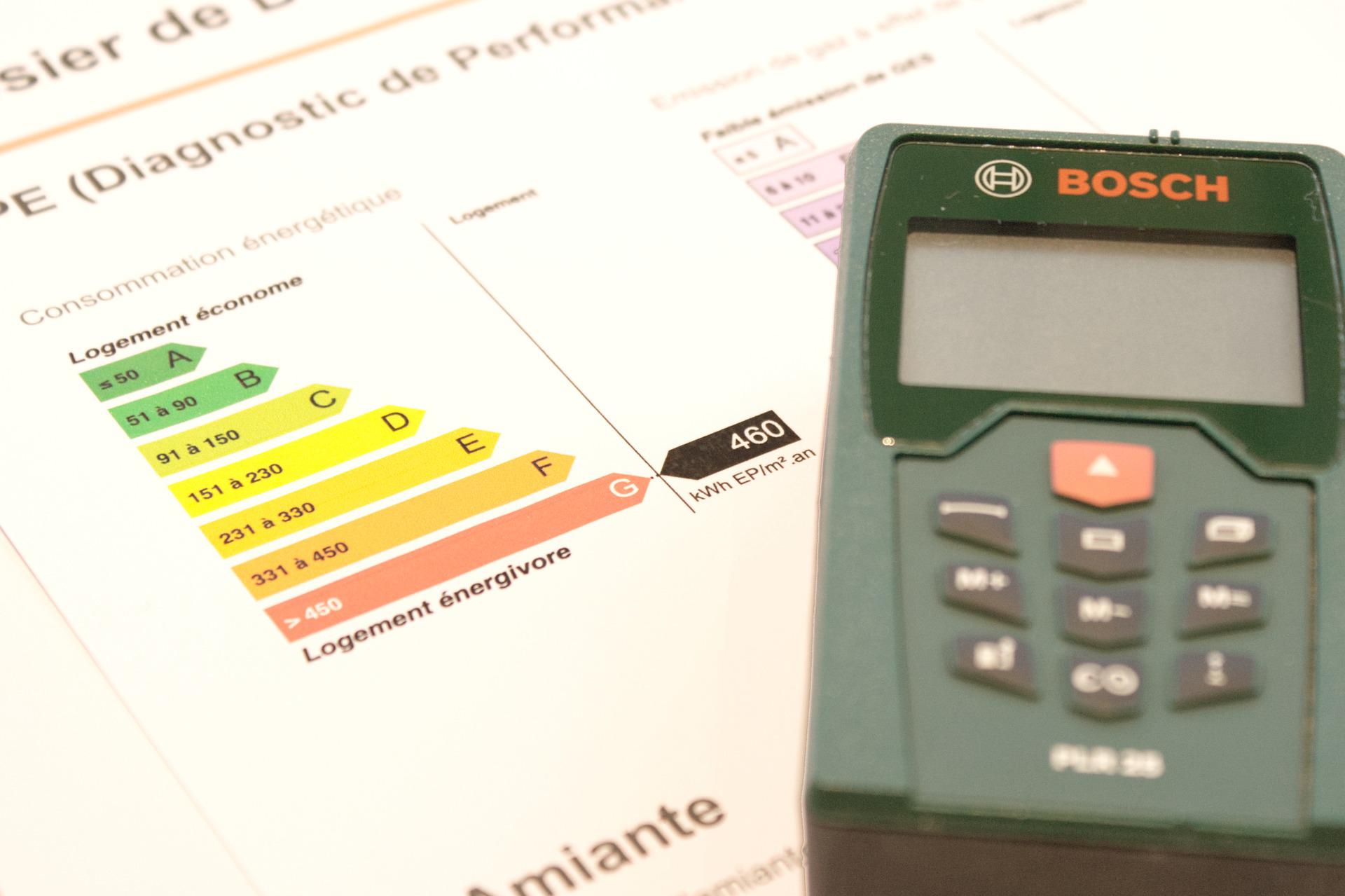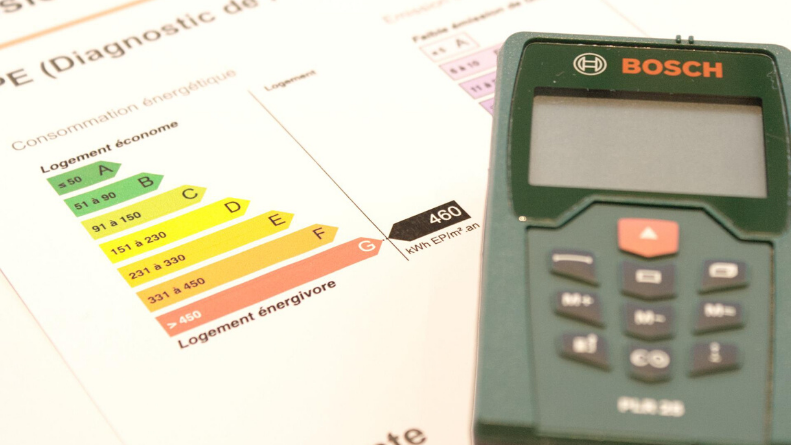The Basics of an Energy Performance Certificate
Unless you’ve been living under a rock, you will have noticed that the UK government is placing a lot of emphasis on meeting its net-zero carbon targets, and home energy efficiency plays a vital role in achieving this. An Energy Performance Certificate (EPC) is a must-have whether you want to put your house on the market or decide to rent it out in the future. An EPC must be obtained before a property can be sold or rented out.
In Scotland, you must display the EPC somewhere in the property, for example in the meter cupboard or next to the boiler.
For now, we’ll focus on why you need an EPC and how much it costs. We’ll go through the exceptions in more detail later.
What are Energy Performance Certificates (EPCs)?
When the European Union first proposed a directive to combat global warming in 2007, they used it to develop an EPC. As part of the 2012 Energy Performance of Buildings Regulations (2012), the current criteria were enshrined into law in 2013. However, certain adjustments have been made afterwards as new information becomes available. It is the goal of an EPC to give complete transparency about a building’s energy efficiency.

“You may see a label or sticker on your freezer, oven, or other household equipment that indicates how efficient it is. That’s the same principle as how an EPC works,” noted Jamie Jonson, CEO of FJP Investment. The EPC provides grades A-G, with A indicating that the building is extremely efficient and G demonstrating that it is the most inefficient in the rating system. In these times of escalating energy costs, which will no doubt be compounded by current geopolitical tensions, this is especially relevant. The lower your property’s rating, the lower your monthly energy payments should be.
The Energy Performance Certificate (EPC) will provide recommendations on how the owner or renters may improve the property’s energy efficiency. These helpful ideas may be cost-effective suggestions, or they may point to other changes that are more costly, but that would require a greater initial outlay of funds.
Every suggestion can lead to potential savings through becoming more efficient. If all improvements are made as suggested, the potential rating is shown to reflect what this could be.
How much will an EPC set you back?
Typically, the cost of an EPC is about £35, but some homeowners can expect to pay a lot more depending on the circumstances. The variables that determine the price change include things like the kind of property, the number of bedrooms, and the location in which you reside.
For buy-to-let property investors, as a landlord, if you obtain your EPC and find it is rated at E or lower, you are legally obligated to make any necessary changes to the property to improve it. Improvements are limited to £3,500, but if you are unable to grade the property to your satisfaction after spending that much, you may be eligible for an exemption. For landlords not eligible for an exemption, you might face a £4,000 fine if you don’t meet the standards necessary for the property.
What does an EPC cover?
There are several components of an EPC that are required by law, but they can also show a wide variety of other information. You must verify that the following is included in an EPC for a property you are considering purchasing or obtaining one for a property you are selling or renting.
- The asset ranking for the building
- A reference value
- A recommendation report, unless there is no reasonable potential for energy performance improvements
- The relevant reference number
- The address of the building
- An estimate of the building’s total useful floor area
- The date on which it was issued
When is an EPC required?
An EPC will be required when a property transaction is carried out, such as when a house is built, sold, or rented out. If you want to sell or rent out your property, you must have this information before you put it on the market. However, it is not necessary to display the entire EPC. The rating of A, B, etc. is all that is required. An EPC is valid for up to ten years. However, if any major changes or improvements are made to the property, then it may need to be updated. A new EPC will not be necessary every time a property is sold if the current EPC is still valid.
Of course, you must also provide additional information when selling a property as well as the EPC. All important information must be given to the estate agent or lawyer who is working for you.
When is an EPC not required?
Earlier, we indicated that in some cases, an EPC may not be necessary. Some of the exempted buildings are not typical residential homes. Because of the building’s status, the present owner may be able to demonstrate that it is protected. Due to the nature of the rebuilding work involved, anything of historical significance would not require an EPC. For example, adding double glass to a historically significant, centuries-old structure would diminish the building’s authenticity considerably. If the status of an older structure is uncertain, we recommend that the local authorities be contacted to find out what the situation is.
All temporary new construction with a two-year or less planned use would also be excluded from requiring an EPC. Residential buildings that are inhabited for fewer than four months out of the year would also be excluded. Building owners can also claim an exemption if they can reasonably foresee and perhaps demonstrate that energy use is less than 25% for the entire year, as seen in this example.
It will not be necessary to get an EPC if the building’s owner can demonstrate that the building can be demolished, and the ensuing land is suitable for development. To be eligible, the owner must show that they have the correct legal documents for renovation or destruction.
Furthermore, some properties that have been converted into holiday homes could also be exempt from requiring an EPC. If this is the case, if the rental period goes beyond 4 months within a 12-month period and the tenant is paying for the energy bills, then an EPC will be required.
In some cases, a property will be excused from the requirement of an EPC since it does not fit into either of the two categories of selling or renting. Lease renewals or extensions, as well as lease surrenders, are examples of this. As with the above-mentioned exemptions, if you are not sure , you should always consult legal advice to determine whether your building falls into one of these categories.
When is an EPC valid?
For an EPC to be valid, it is essential that it only reflect the property that it is being used to represent and not be used for any other property. A separate EPC will be required for buildings that are being used for dual use, like where an office complex also holds a residential unit within it. As implied by the above example, anything that can be classified as being used or adapted for a separate use will need to have its own separate EPC for it to be valid.
Buying, selling, or letting a property
Unless falling within one of the exemptions listed above, an EPC is a legal requirement for all buildings. Before you even start the listing process of selling your home, or renting your buy-to-let investment, you must have a valid EPC in place. Before letting or selling a property, a letting or selling agent will request to see the EPC.
Obtaining an EPC within seven days after ordering one is the duty of the party selling, the landlord, or the estate agency. If an EPC cannot be obtained within the first 7 days despite all reasonable and practical attempts, an extension of 21 days may be allowed.
The EPC (A to G) grade is essential to be displayed in your property’s online listing, whether it’s through an estate agent or on your own. This requirement is to be taken seriously because, if you don’t, you might be hit with a £200 fine for each advertisement listed.
It is permissible to provide a copy of an EPC to an interested buyer or renter, but the person taking on or renting the property must get a completely valid EPC free of charge once the property transaction goes through.
Asking to view the EPC
If you are going to view a rented property or one for sale, you can request proof that the property has a valid EPC in place, and the owner must take steps to produce it for viewing in a timely fashion. This means that the owner must provide the EPC within certain time constraints, no later than:
- When a buyer or tenant first asks for information on a building, the seller or landlord’s initial written response to that request, or
- When an interested buyer or renter asks for a viewing of the building.
Is it possible to conduct energy efficiency checks yourself?
Some may consider trying to save money by obtaining an EPC by conducting the checks themselves. However, this is not allowed.
An EPC can only be given out by a fully qualified domestic energy assessor who has done all the background checks.
For newly constructed buildings, an onsite assessor is required to carry out the requisite checks and issue a valid EPC. It’s critical to ensure that anyone you hire to conduct the efficiency checks is a member of an accreditation programme recognised by the government. Contact your local authority if you are unsure who you can use. Failure to comply with this legal requirement will render invalid any documentation produced.
How is the EPC assessment conducted?
If you’re planning to put your house on the market and need a fresh EPC, you’ll have to provide the assessor with some relevant information so they can do a proper assessment. The assessor will next carry out the inspections and produce the findings using a government-approved method. The EPC and suggestions will then be generated as a result. In order to get the assessment done, your assessor will need to know the following things:
- How old the building is
- Whether the building has been extended, and if so, when was it done
- If it is double-glazed
- Whether any walls have been insulated and what type of insulation it is
- When boilers and hot water cylinders were installed, along with their make and model,
- The thermostat and heating timer locations
- The location of the gas and electric metres
- The type of heating fuel you use, as well as the types of heating in the property
Summary
Government guidelines key points:
- An EPC is valid for 10 years and can be reused as many times as required within that period.
- The regulations require an EPC to be commissioned, if there is no valid EPC for that building, before a building is put on the market.
- Before marketing a building for sale or rent a person acting on behalf of the seller or landlord (for example, the estate or letting agent) must be satisfied that an EPC has been commissioned for that building.
- An EPC must be produced by an accredited energy assessor who is a member of a government approved accreditation scheme.
- All advertisements in the commercial media must clearly show the energy rating of the building (where this is available).
- The regulations require an EPC to be given free of charge to the person who becomes the buyer or tenant of the building.
- An EPC shows the energy efficiency rating on an A–G rating scale for a building
- The EPC includes recommendations on how to improve energy efficiency.
ARE YOU READY TO START INVESTING?
Subscribe to our mailing list now for exclusive deals, investment guides and the latest information from the property market.







